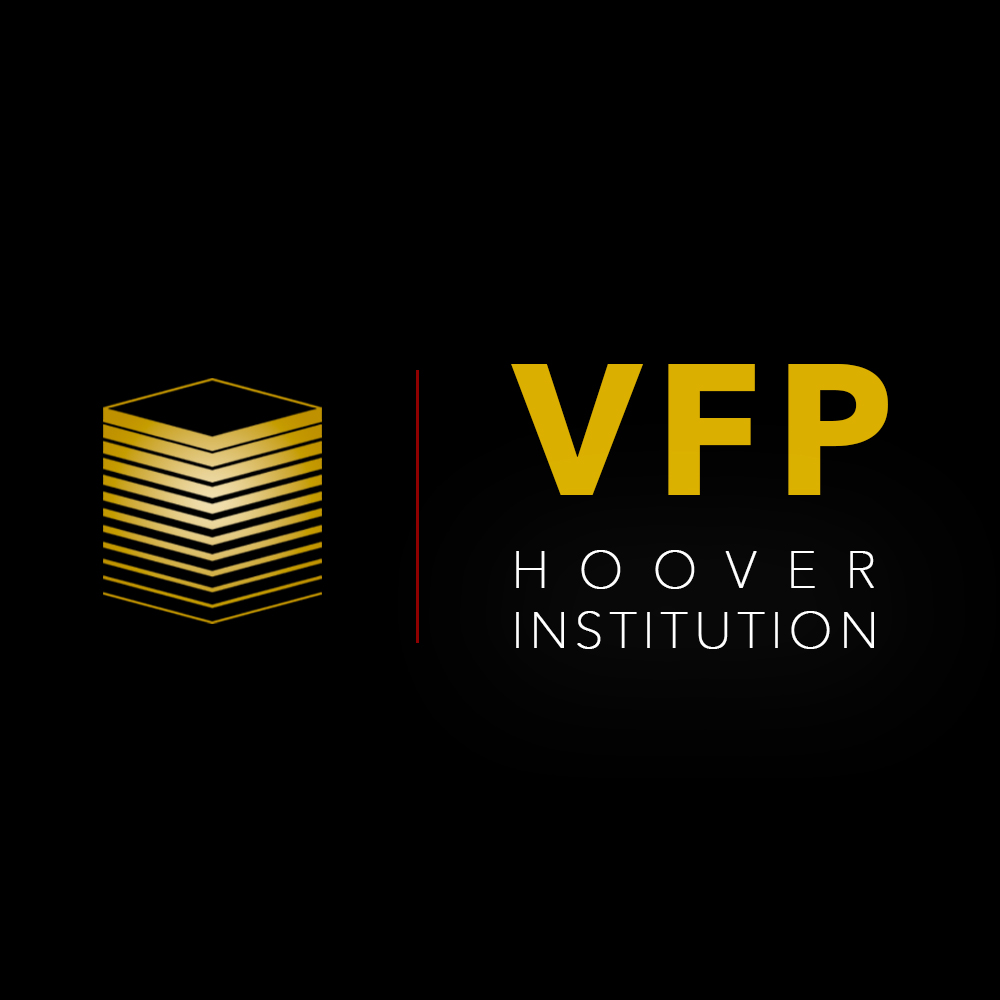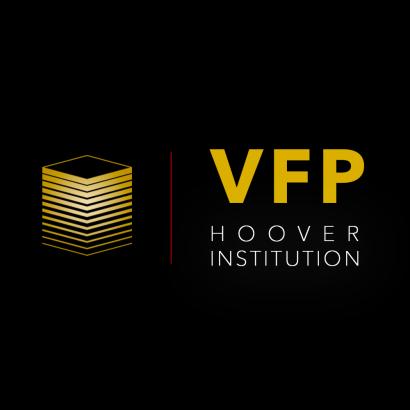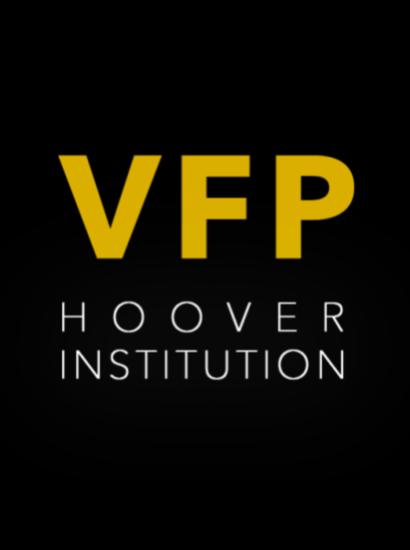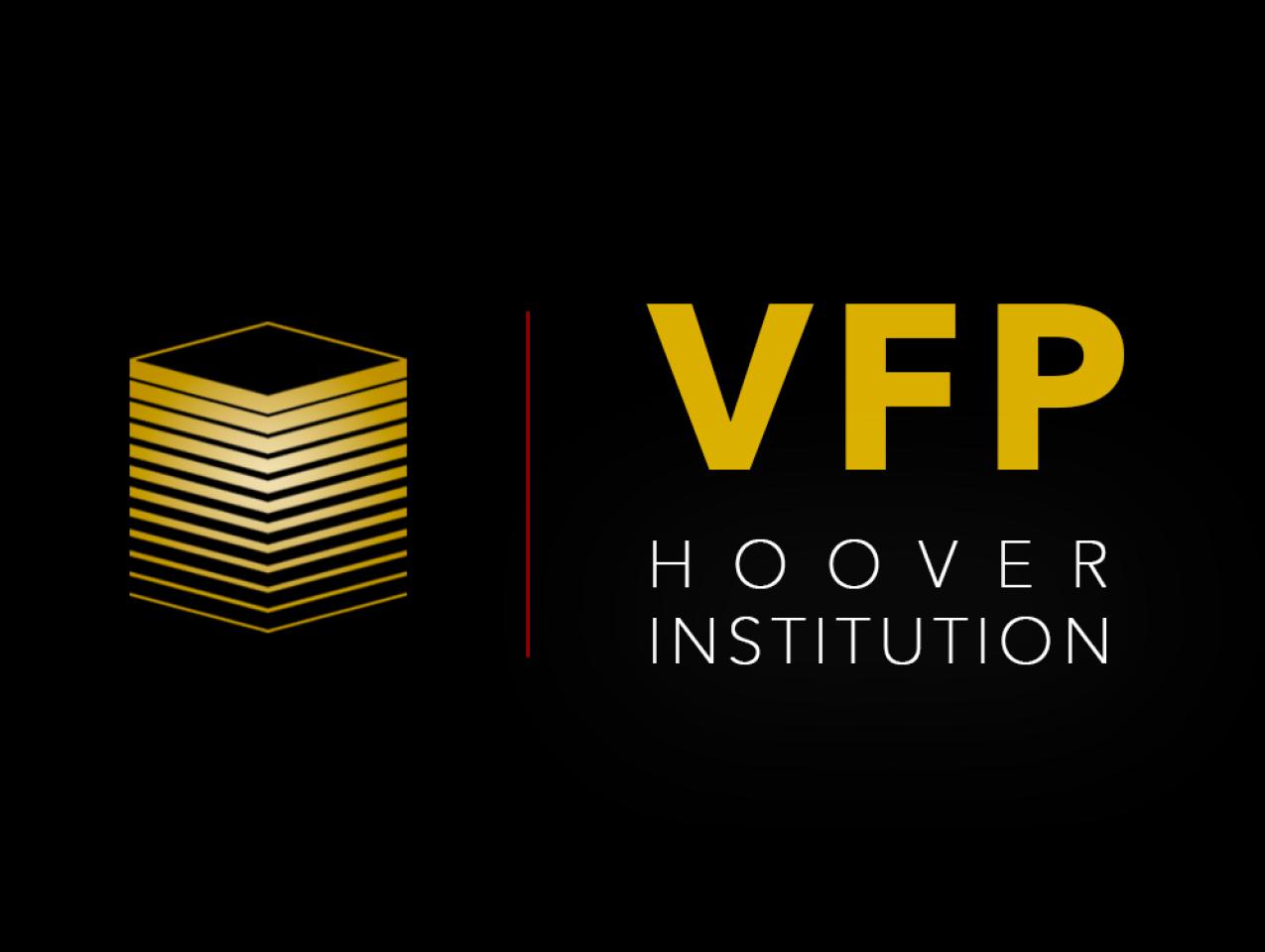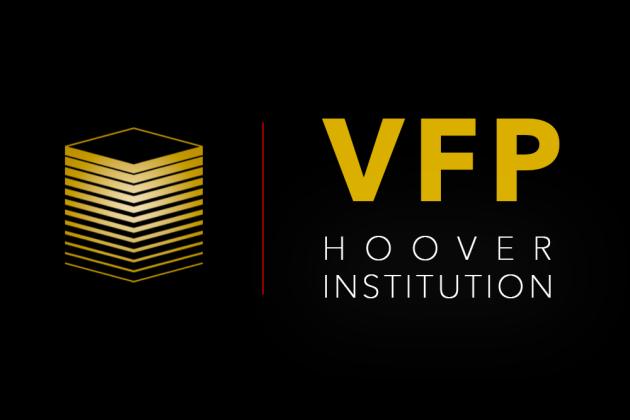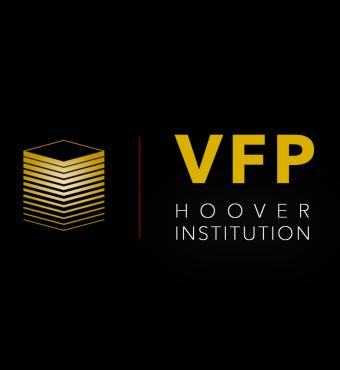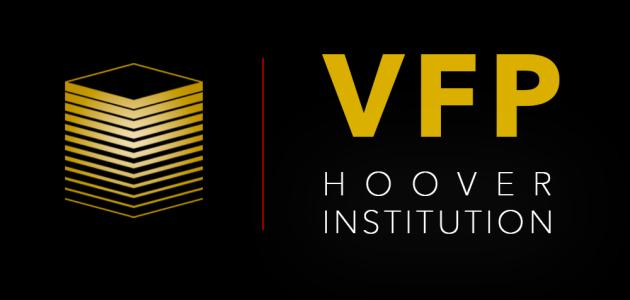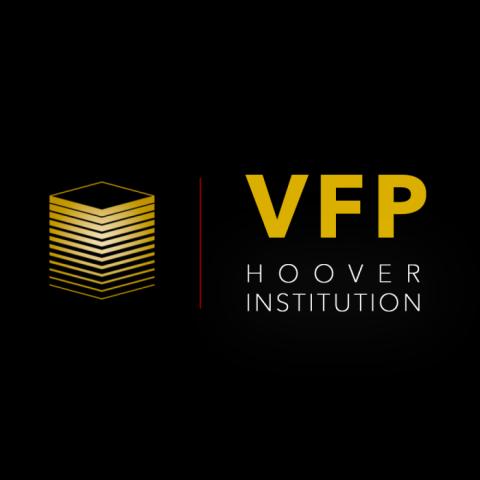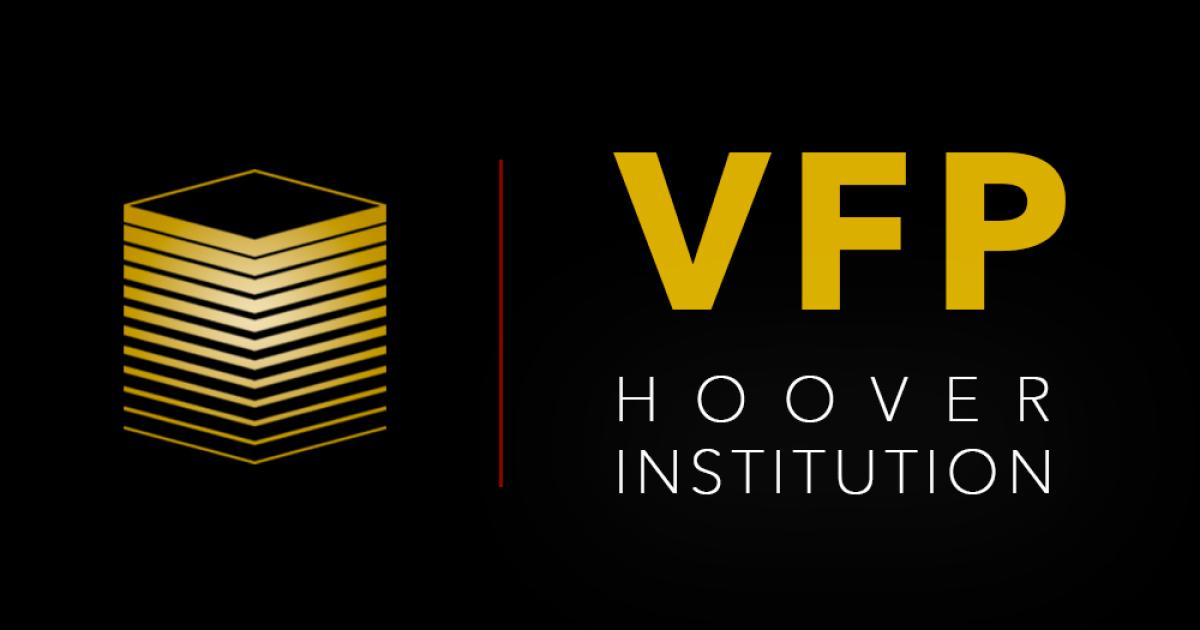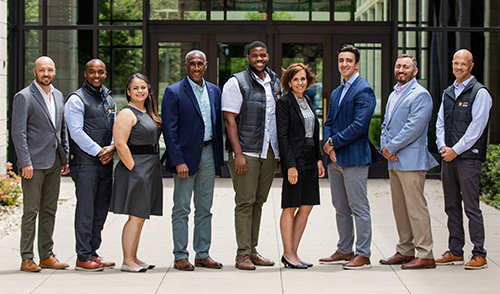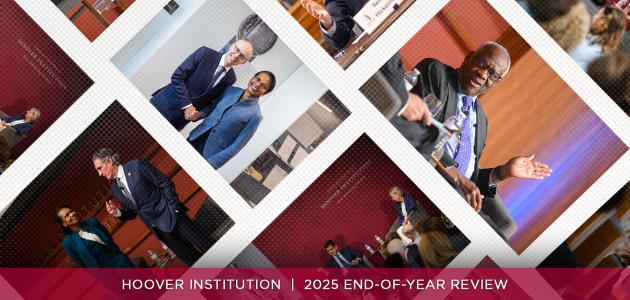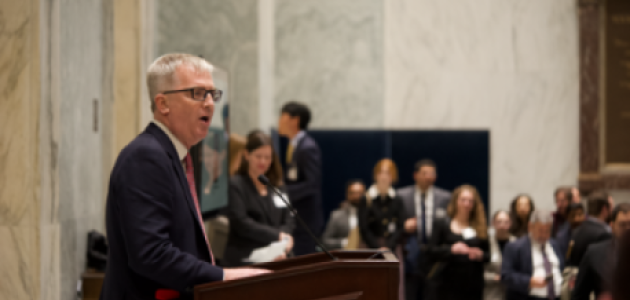Hoover Institution (Stanford, CA) – The Hoover Institution is pleased to announce the 2023–24 class of its Veteran Fellowship Program (VFP).
This is the third class since the fellowship was launched in fall 2021. It includes nine veterans, representing four branches of the US armed services. Veterans were selected based on demonstrated leadership qualities, success in their professional careers, the viability of their proposed capstone projects, and their shared values with the Hoover Institution, especially the commitment to advancing freedom.
The program is designed for military veterans who are motivated to effect meaningful change in their communities. During their time in the program, veteran fellows will have the opportunity to leverage the resources and expertise of Hoover and Stanford scholars, expand their networks, and advance efforts to find actionable solutions to policy challenges through their capstone projects.
All members of the VFP have served in the US military within the past two decades, during the years surrounding the attacks of September 11, 2001, and the declaration of the war on terror. As demonstrated in previous cohorts, these veterans’ service to the nation is unremitting. Moreover, they come to Hoover with a high level of skills, dynamism, and intellectual curiosity to grapple with complex policy challenges.
In the last two years of the program, veteran fellows’ capstones have proposed solutions to various pressing issues including mitigating fire risks in California through insurance markets, expanding housing for homeless veterans, making permanent the special immigration visa program for foreign nationals who are employed by the US government worldwide, developing technology apprenticeship programs for low income high school students, and others that are critical to the nation’s well-being and competitiveness. In each case, individual fellows have built up networks to support and raise awareness for their respective capstone solutions.
“The defining characteristics of our US military veterans make them natural leaders in a wide array of areas essential to the protection of democracy and national security to ensure that all are free to pursue the American dream,” said Hoover Institution director Condoleezza Rice. “The Hoover community will benefit greatly from the experience and wisdom acquired from their service to this nation.”
The fellowship program will involve various gatherings during the academic year at the Stanford University campus and Hoover’s Washington, DC, office. These include the program launch in June 2023; a presentation of the fellows’ capstone project proposals to the VFP advisory council in September 2023; and three modules, in which they can work on their capstone projects and connect with other members of their cohort and the broader Hoover and Stanford communities. At the end of their one-year fellowship, members of the cohort are invited to attend Hoover’s Spring 2023 Retreat, which will provide them with an opportunity to engage with Hoover leadership and donors about their experience in the Veteran Fellowship Program.
The 2023–24 VFP class features the following nine veterans:
Chris Bourne served as an infantry officer in the US Marine Corps for twenty-eight years. He received his bachelor’s degree from Boston University and master’s degrees from the Marine Corps Command and Staff College and the National War College. He works as a business development and strategic planning consultant and serves on the board of the National Center for Healthy Veterans.
Matthew Brown served in the US Navy for twelve years. He held various leadership and operational roles, culminating in command of USS Scout (MCM-8). He is a graduate of the US Naval Academy and former CNO Strategic Studies Group Fellow. He now leads the mental health care company Chimney Trail, which aims to eliminate pathological anxiety, depression, and suicide through preventive cognitive behavioral therapy.
Bob Bruce retired from the US Marine Corps as a colonel after thirty combined years of active duty and reserve service as an infantry and artillery officer. He was a deputy district attorney in San Diego for seventeen years and is now counsel at a law firm in Newport Beach, California. He has a degree in aerospace engineering from the US Naval Academy and is a graduate of USC Law School.
Greg Eason is a US Navy veteran with years of industry experience as a real estate development manager and real estate investor. He currently serves as cofounder of Cascade Centennial, a real estate start-up whose mission is to build sustainable communities by developing multifamily residential projects in partnership with faith organizations, nonprofit institutions, and community stakeholders.
Claudia Flores served as a naval cryptologist before earning her commission as a naval intelligence officer. Her tours of duty included an overseas assignment, combat deployments, and service on the Joint Staff. Following her military career, she began working in state government and is now a policy director focused on state legislative and budget development. She is pursuing a PhD in public administration.
Marcus Landers served as an infantry officer in the US Marine Corps for six years. He received his bachelor’s degree in mathematics from Georgetown University and an MBA from Harvard Business School. He is the founder of ResiLift Solutions, a climate adaptation startup, and the vice president of business development for Payne Construction Services, a structural lifting contractor.
John Moses served for twenty-three years as a senior enlisted soldier. Most recently, he volunteered as a case manager for the evacuation of Afghans through Kabul International Airport, and he continues to support their resettlement in the United States. He is currently a technology executive and an elected member of the school committee in his community,
Trillitye Paullin is an Operation Iraqi Freedom veteran, currently serving her eighteenth year in the Army National Guard, and is the CEO and cofounder of Free to Feed. After her daughters suffered through food reactions to proteins transferred from her diet to breast milk, she invented the first at-home test kit to detect allergens in human milk. She holds a doctorate in cellular and molecular biology.
Adrian Perkins served eight years in the US Army, where he achieved the rank of captain and earned a Bronze Star. He is a 2008 graduate and class president of the US Military Academy at West Point. Born and raised in Shreveport, Louisiana, he is the former mayor of the City of Shreveport and a graduate of Harvard Law School.
For more information on the Hoover Institution’s Veteran Fellowship Program, click here.
For coverage opportunities, contact Jeffrey Marschner, 202-760-3187, jmarsch@stanford.edu.







